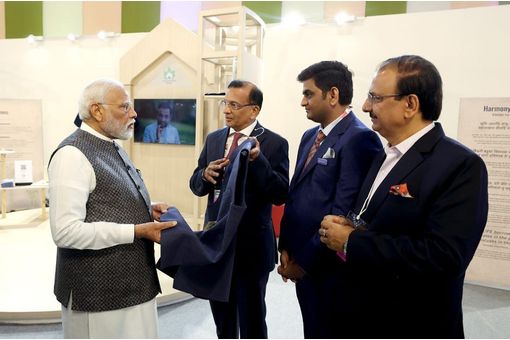Interviews
Trade protection barriers amplify global recessionary trends
16 Feb '09
2 min read
At the press conference of the State Council held on February 9, Vice Minister of Ministry of Commerce Jiang Zengwei clearly expressed, "China will not implement 'Buy Chinese Goods” policy and China will treat domestic and foreign goods equally without discrimination, as long as there is demand”.
However, after a month of intense debate, the U.S. Congress finally passed the stimulus budget, with a total size of about US $790 billion on the night of February 13. It contains the controversial Kissell amendment which seeks that all textiles and clothing products contracted by the Department of Homeland Security (DHS) must be produced from 100 percent American ingredients.
At present, the momentum of trade protectionism is slowly picking up pace. It started a few months ago with Mexico and Argentina and now, US, India, Russia and a few European countries. These protectionist measures are expected to hurt China the most, as its economy is dependent on the booming export sector.
The collapse of U.S stock market in 1929 triggered a financial crisis, while the real economic great depression came in the second half of 1930; the initiator of which is considered the Hawley Tariff Act. The bill imposed high tariff barriers on more than 20,000 kinds of imported products in to the US.
This brought in almost a chilling effect to international trade and triggered a global trade war. This happened because, each country on the lines of the US, tried to insulate itself from the recession and created high tariff barriers, which effectively blocked goods from other countries, due to which the global economy tanked for a period of 10 years.
It took the international community several years to dismantle those high tariff barriers, helped to a great extent by the WTO treaty. A vast majority of economists aver that the biggest learning from the great depression of the 1930's is that trade protectionism does not save economies in a global recessionary period, but rather amplifies it.
However, after a month of intense debate, the U.S. Congress finally passed the stimulus budget, with a total size of about US $790 billion on the night of February 13. It contains the controversial Kissell amendment which seeks that all textiles and clothing products contracted by the Department of Homeland Security (DHS) must be produced from 100 percent American ingredients.
At present, the momentum of trade protectionism is slowly picking up pace. It started a few months ago with Mexico and Argentina and now, US, India, Russia and a few European countries. These protectionist measures are expected to hurt China the most, as its economy is dependent on the booming export sector.
The collapse of U.S stock market in 1929 triggered a financial crisis, while the real economic great depression came in the second half of 1930; the initiator of which is considered the Hawley Tariff Act. The bill imposed high tariff barriers on more than 20,000 kinds of imported products in to the US.
This brought in almost a chilling effect to international trade and triggered a global trade war. This happened because, each country on the lines of the US, tried to insulate itself from the recession and created high tariff barriers, which effectively blocked goods from other countries, due to which the global economy tanked for a period of 10 years.
It took the international community several years to dismantle those high tariff barriers, helped to a great extent by the WTO treaty. A vast majority of economists aver that the biggest learning from the great depression of the 1930's is that trade protectionism does not save economies in a global recessionary period, but rather amplifies it.
Fibre2fashion News Desk - China
Popular News
Leave your Comments
Editor’s Pick
Therese Premler-Andersson
Textile Machinery Association of Sweden (TMAS)
Andrea pompilio
Label - Andrea pompilio
































-Ltd..jpg?tr=w-120,h-60,c-at_max,cm-pad_resize,bg-ffffff)





.jpg?tr=w-120,h-60,c-at_max,cm-pad_resize,bg-ffffff)
.jpg?tr=w-120,h-60,c-at_max,cm-pad_resize,bg-ffffff)






